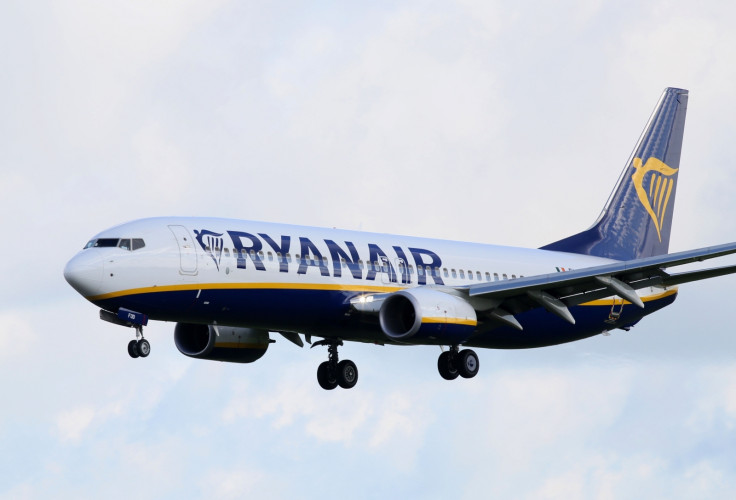Ryanair profits take off but cancellation blunder will cost €25m
Irish carrier remains on track to meet full-year targets despite cancelling 20,000 flights last month.

Shares in Ryanair soared over 5% in early trading on Tuesday (31 October), after the budget airline reported a sharp increase in first half profits, despite the pilot roster fiasco which led to thousands of flights being cancelled last month.
In the six months to the end of September, the Irish carrier reported an 11% year-on-year increase in pre-tax profits to €1.29bn (£1.14bn), adding that it remained on course to record a full-year profit in a range of €1.4bn to €1.45bn.
Meanwhile, passenger traffic increased 11% year-on-year to 72.1 million, but growth will slow to 4% in the second half, following the airline's decision to ground 25 aircraft. As a result, 129 million passengers are expected to fly with the airline over the course of the year, two million fewer than originally forecast.
Last month, the Dublin-based airline was forced to cancel approximately 20,000 flights between September and the end of March, affecting some 700,000 passengers. The issue stemmed from its decision to reschedule its holiday year to run from January to December, rather than the current system, when it runs from April to March. As a result, it had to allocate annual leave to pilots in September and October.
The blunder cost the airline €25m in compensation costs and it to hike the salary of its pilots, which the airline claims is now 20% higher than its rival Norwegian. The new wage structure , however, will result in a €100m increase in costs this year for the airline, which has recruited 900 pilots so far this year.
While the cancellations also took their toll on second quarter profits, which dipped 2% to €1bn, Ryanair said they helped restore its punctuality to around 90%, compared with a low of 70% in September.
"While we deeply regret these flight cancellations and winter schedule changes, and the disruption they caused to some 700,000 customers, we have worked hard to re-accommodate or refund all affected customer requests within 18 days of notifying them," said Ryanair chief executive Michael O'Leary.
"The overwhelming majority have chosen re-accommodation on alternative Ryanair flights, but we have also provided refunds, and met our EU261 obligations in full."
Brexit worries
O'Leary added the airline remained concerned at the continuing uncertainty surrounding the terms of the UK's departure from the EU, hinting the government was underestimating the likelihood of flight disruptions to and from the UK after March 2019.
"There remains a worrying risk of a serious disruption to UK-EU flights in April 2019 unless a timely UK-EU bilateral is agreed in advance of September 2018," he explained.
"We, like other airlines, need clarity on this issue before we publish our summer 2019 schedules in mid-2018 and time is running short for the UK to develop a bilateral solution."
Laith Khalaf, senior analyst at Hargreaves Lansdown, warned that while the numbers showed little signs of weakness, the reporting period only covered the start of the problems encountered by Ryanair, so further costs could arise.
"It's too early to tell whether there will be any lasting effect from the flight cancellations announced in September, though providing Ryanair can keep the operational problems from arising again, it seems unlikely reputational damage will be an issue," he said.
"As the success of the Ryanair business model has shown, customers simply want to fly from A to B as cheaply as possible, and what happens in the few hours in between is less of an issue."






















